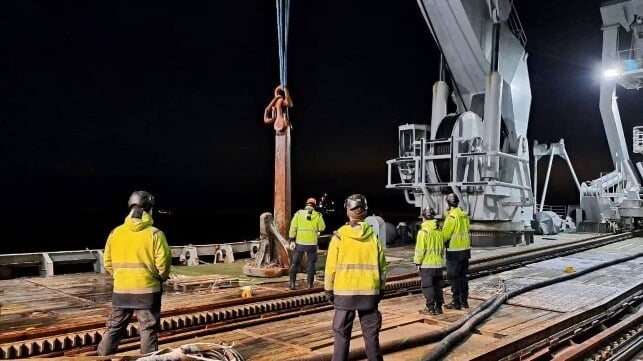Finnish Prosecutors Appeal Court Ruling on Eagle S Cable-Damage Case

Prosecutors in Finland are appealing a lower court ruling that found that the nation does not have any legal jurisdiction over subsea infrastructure sabotage within its exclusive economic zone. The ruling brought a halt to the trial of three officers from the shadow fleet tanker Eagle S, which severed multiple Finnish-owned subsea cables in the Baltic last December.
The court found that proper jurisdiction over incidents in international waters belongs to the seafarers' state of citizenship or to the flag state - in this case, the Cook Islands, a Paris MOU gray list registry with a commercial manager and a reputation for Russian "shadow fleet" services. So far, the registry has not taken any public action against Eagle S in connection with the case.
The court's decision means that Finland is on the hook for the defendants' legal fees of about $200,000. Further, the shipowner is considering a multimillion-dollar civil suit against Finnish authorities for the diversion, boarding and detention of the vessel.

that matters most
Get the latest maritime news delivered to your inbox daily.
The circumstances of the case have many maritime legal observers concerned that there is a dangerous loophole in the UN Convention on the Law of the Sea. If the coastal state has no jurisdiction over subsea infrastructure outside of the 12-mile line, and a ship can flag with a highly permissive open registry, there is no legal means of prosecuting sabotage in international waters.
"As long as you have a flag state that doesn't care, you can now count on the freedom of navigation to continue to break cables without consequences. This means that no one can do anything about it. This is completely unreasonable," Henrik Ringbom, professor of maritime law at Åbo Akademi University, told YLE.
